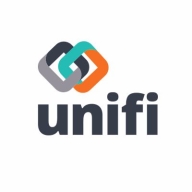

IBM InfoSphere Information Server and Unifi are competing products in the data management landscape. IBM often leads with its robust capabilities in integration, while Unifi attracts attention with innovative features and ease of use.
Features: IBM InfoSphere offers comprehensive data integration tools, data governance, and scalability, which are crucial for large-scale enterprise environments. Unifi is known for its intuitive data preparation, seamless collaboration, and simplicity, making it ideal for agile data teams.
Ease of Deployment and Customer Service: IBM InfoSphere's deployment aligns well with environments needing extensive customization and integration support. Unifi is favored for its straightforward deployment and excellent customer service, focusing on faster implementation and accessibility for quick turnarounds.
Pricing and ROI: IBM InfoSphere has a higher initial setup cost but offers substantial long-term ROI due to its powerful capabilities. Unifi is more cost-effective initially, promising ROI through efficient data handling and user productivity, though subscription costs may increase over time.


The Unifi Data Platform breaks down the barriers of operational data silos and democratizes information across the enterprise. At the heart of the platform is a comprehensive suite of self-service data discovery and preparation tools to empower business users. Employing machine learning and artificial intelligence technologies, and optimized for the cloud, Unifi predicts what the business user wants to visualize and then connects the resulting data natively to the BI tool for fast, accurate results.
We monitor all Data Integration reviews to prevent fraudulent reviews and keep review quality high. We do not post reviews by company employees or direct competitors. We validate each review for authenticity via cross-reference with LinkedIn, and personal follow-up with the reviewer when necessary.